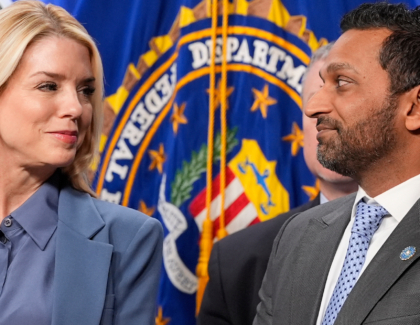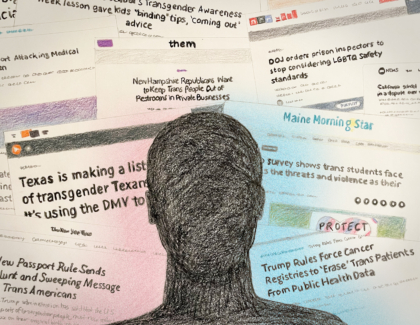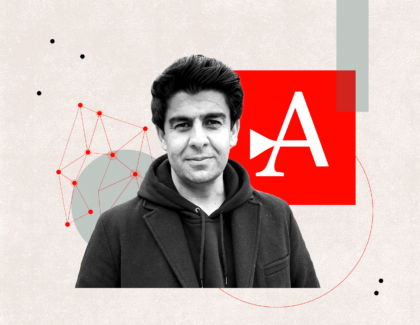Sign up for the daily CJR newsletter.
Intended as a boon for journalism in Africa’s most populous country, Nigeria’s Freedom of Information Act took more than a decade to implement. When it was finally passed in 2011, it established the right to access or request information from a public official, agency, or institution. Those institutions, in turn, were legally obliged to respond within a week; whistleblowers would be protected from prosecution.
But after four years of obfuscation, partial answers, or government departments simply ignoring FOIA requests, Nigerian journalist Nicholas Ibekwe says that Nigerian journalists have largely stopped using the law, which Nigeria’s Guardian newspaper has described as “barely more meaningful that the paper it was written on.”
“We just rely on insiders or whistle-blowers willing to get needed documents and information out rather than wait for endless turnarounds from civil servants and politicians,” Ibekwe tells CJR.
In the last 25 years, more than 85 countries worldwide have introduced freedom of information legislation, according to a 2014 report by the Africa Freedom Information Centre (AFIC). But in Africa, only 13 of 54 countries adopted access-to-information laws in that time, which AFIC attributed to an absence of political will and lack of financial resources and technical expertise.
AFIC’s report was scathing about certain countries. The Democratic Republic of Congo, it noted, had a “ruling culture of secrecy in public services,” and “legal provisions for press criminalization.” Ethiopia “criminalizes journalism and the free flow of information”; In Namibia, “secrecy prevails, as there is no access to information law that requires the availability of information in the public domain … [and] Namibia’s legal framework encourages secrecy and confidentiality.”
In addition to setting forth guidelines for information requests, Nigeria’s FOIA directs public institutions to make certain information available without being asked. Public bodies should “as a minimum” publish operational information, “including costs, objectives, audited accounts, standards, achievements and so on, particularly where the body provides direct services to the public,” according to the law.
But a report released last month by a nonprofit media rights organization in Nigeria says the government’s track record on so-called “proactive disclosure” has been abysmal. Of the 39 government institutions assessed in the report, none had complied fully with its obligation to proactively disclose information, according to Right to Know Nigeria, also known as R2K.
R2K gave each institution a monthly score for disclosure over a one-year period. The average level of compliance was just 9.35%, with the Federal Ministry of Justice attaining the highest score at 19.52%, and the Nigeria Football Federation ranking lowest, at 2.96%.
In February, 2013, Ibekwe wrote in Nigeria’s Premium Times newspaper that the Central Bank had become the first government agency to positively respond to an FOIA request—“albeit partially.” In that case, a law firm requested details of the bank governor’s salary, which the bank provided. But it neglected to supply information about his allowance for foreign travel, which the firm had also sought.
Ibekwe says he doesn’t think the country’s FOIA was passed just to pay lip service to the idea of open government; nor is there, in his view, an official policy to frustrate FOI requests. “The problem is with civil servants and other officials who do not appreciate the importance of open government and transparency,” so inculcated have they become in an atmosphere that encourages secrecy, he says. “Many government officials also see journalists as nosy troublemakers and do everything to stop them from having access to vital information.”
There are other hurdles, too, including one that will sound familiar to American reporters: government agencies can take months or even years to answer FOIA requests. Ibekwe submitted a letter to the Lagos State tourism ministry more than six months ago, requesting information about a beach resort the last governor claimed to have built. “I had visited the island and discovered that not a single stone had been erected where the government claimed the N3.4 billion ($17m) resort was built … and the state government is yet to respond to that letter.”
Although reporters can go to court to compel the release of information, “the painful slowness of the court will discourage the most optimistic to even bother to try,” Ibekwe says.
CJR sent emails seeking comment to 13 public institutions whose addresses were listed on the official FOIA website of Nigeria’s Ministry of Justice, which oversees the FOIA. Of those, five bounced back. Just one official responded: Ada Lekwa Onwuka from the Ministry of Environment. She wrote: “l make bold to say Federal Ministry of Environment FOIA Unit has been empowered to respond or disclose information in line with the provisions of the ACT.” A follow-up phone call went unanswered.
Reached by telephone, the Ministry of Justice told CJR to re-send any questions via email. There was no response by press time.
Omoyele Sowore, a 43-year-old Nigerian dissident and journalist now in exile in the US, agrees that not much has changed since the introduction of Nigeria’s FOIA. For the past nine years, Sowore has run Sahara Reporters, an online news agency based in New York City that reports on corruption and human rights issues in Nigeria. Some readers have nicknamed it “Africa’s Wikileaks.”
Sowore doesn’t use the FOIA to do his work at Sahara Reporters, but his agency has reported extensively on NGOs and other individuals who have attempted to use it. “It’s not made a big impact,” he said. “There have been cases in court where judges have asked public officials to release documents, but we haven’t seen any of those documents. They’re paying lip service without actually doing anything. We’ve not had one situation in which there was something big to report from an FOIA request in Nigeria. It’s easy for officials to destroy documents or say they do not know those documents exist.”
Nigerian journalism, Sowore says, is still beset by corruption, which largely takes the form of reporters accepting bribes from business executives and government officials, sometimes right after a press conference. They’re known as “brown envelope” payments, although Sowore says they’ve become a little more discreet these days. “It’s easier to bribe a journalist now because [officials] can send money to their account via cellphone. There are no stuffed envelopes anymore.”
Premium Times’ Ibekwe says that in the last two months, he has turned down various offers to pay his “transport fare,” usually between 5,000 and 10,000 Nigerian naira ($25 and $50) or more if it follows a press conference organized by an oil company or bank. Politicians occasionally offer as much as N100,000 ($500), he said. It may not sound like much, but with journalists among the worst paid professionals in the country–a typical salary for a mid-career reporter could be as low as $50 per month, with no benefits–it’s little wonder many accept the sweeteners.
Ibekwe says he has been offered bribes on several occasions. In one instance, the chief press secretary of a government official called him a “fool” for refusing the money, he says.
Nigerian editors are said to receive “huge sums of money to kill stories or not report a particular event,” Ibekwe says. “Last month, one Nigerian oil and gas company recorded the biggest corporate loss in the history of the country but almost all of the traditional newspapers failed to report it.” He believes that money must have changed hands to guarantee their silence.
The problem isn’t just with the FOIA in Nigeria, Dr. Winston Mano, director of the Africa Media Centre at the University of Westminster, tells CJR. “It’s shared among many African countries where the government is trying to be open. But in reality, many African governments want to take away with the left hand what they’re giving with the right. These Acts become tokens. There’s a lack of substance in them, and the reason is that governments are still very much afraid of journalists armed with information. They’d rather have a very weak press which they can manage at will.”
Mano says these governments act as if they’re in line with worldwide press freedom norms in part to get money from organizations like the UK’s Department for International Development (DFID), which, along with the Canadian International Development Agency, gave Nigeria funding to help implement its FOIA. A DFID press officer tells CJR that in Nigeria, the agency’s “contribution…has largely been through capacity building and awareness raising,” and that it has had “limited direct involvement” with implementing the law.
“Above all, corruption is at the center of [officials’] refusal to obey FOI requests,” says Ibekwe. “If you have something to hide, would you be willing to allow a reporter access to information that might implicate you?”
Has America ever needed a media defender more than now? Help us by joining CJR today.






